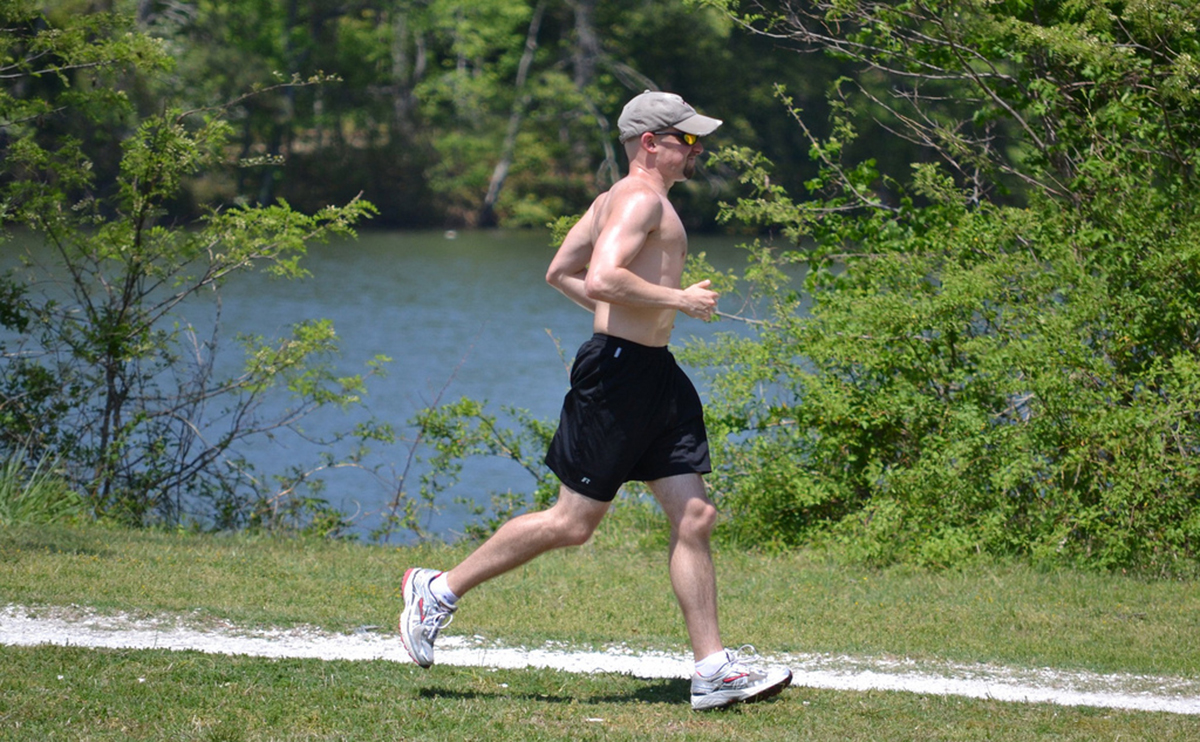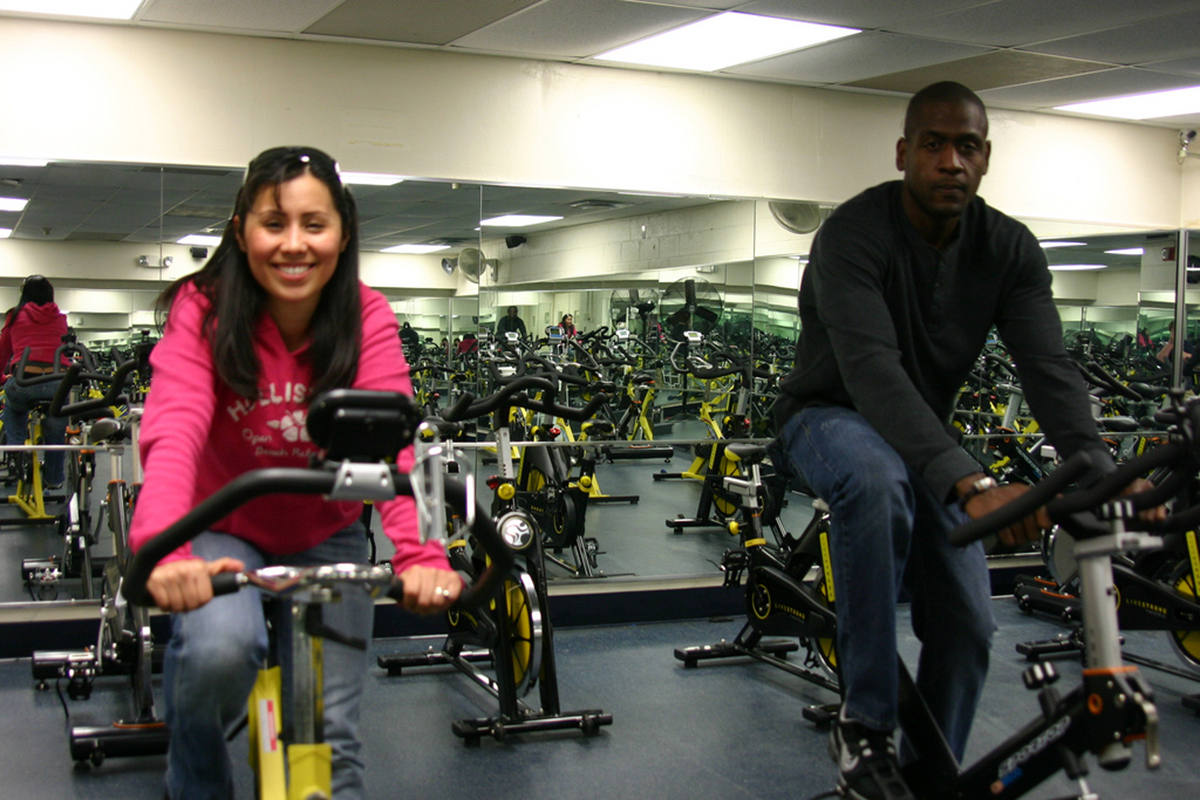Fasting cardio has been used by athletes who are trying to 'cut' weight for decades. Boxers use it to make weight for fights, struggling to drop those last few pounds to get into a weight category at weigh-in time. Bodybuilders often swear by fasting cardio to lose bodyfat and give them the defined look they crave. And in recent years, people who want to lose weight have eyed fasting cardio and wondered, 'can it do the same for me?'

First, let's look at what happens to your body when you do fasting cardio.
The principle of fasting cardio is not that your stomach is empty, but that your blood sugar is low. If your blood sugar's low, when you start doing cardio your body will try to use other sources of fuel, including glycogen stores, but these will quickly be depleted. Fasting cardio sessions often go on for 45 minutes, sometimes more. The purpose is to force the body to use body fat as a fuel when other fuels are exhausted.
The theory seems to make sense, but does it work?
It certainly seems to. As we saw in the first paragraph, fasting cardio is a tool boxers and bodybuilders have been reaching for for decades. But just because the boxers are losing weight, doesn't mean they're losing fat. And just because the bodybuilders are losing fat, it doesn't mean it's the fasting cardio that's doing it.
Boxers who want to get down to weight use all kinds of unsafe practices - many boxing equipment stores still sell 'sweatsuits, designed to sweat off a couple of pounds of much-needed water before a weigh-in. It might work for their purposes, but we wouldn't recommend it for actual fat loss. In the same way, boxers who use fasting cardio to lose weight are typically going to lose more muscle than fat. We'll get into how that works in just a moment.
Additionally, cortisol and testosterone-like substances bind to the same sites - the more testosterone you have, the less cortisol affects you, so if you're taking anabolic steroids you can elevate your blood cortisol without being affected by it.
Their bodies don't react like ours and we can't measure the training methods that work for a man in his 30s who weighs 275 pounds at 5'8 and has visible muscular striations, and apply the same protocols to ordinary people. Without the genetics and the drugs we couldn't sustain the crushing weight training schedules these athletes use; we shouldn't use their cardio protocols either.
The key argument against the use of fasting cardio for pretty well anyone who isn't a professional figure athlete is this:
it tends to metabolize muscle at the same pace as fat.
If you're trying to lose weight, the chances are that you're trying to look better and feel better as well as weigh less. Fasting cardio isn't your friend here.
The other reason is connected: fasted cardio will tend to reduce your capacity to lose fat further down the line.
See Also: Facts and Myths About Cardio Training
If you're stronger you can move more load, which means more 'work,' in the physics sense of the term, which requires more energy - more calories. If your muscles are thinner and weaker that's harder and as a result your training sessions are less intense and often shorter.
Let's get a bit deeper into the reasons why fasting cardio will tend to reduce muscle mass.
Why Fasting Cardio Will Tend To Reduce Muscle Mass?
First we tend to do fasting cardio first thing in the morning. Leaving aside those of us who sleep-eat, most of us fast al night, so it makes sense to schedule fasting training first thing in the morning. Trouble is, that's whe your cortisol levels are at their highest, and fasting training elevates cortisol levels. Cortisol is a hormone that's linked to stress and it causes fat laydown and muscle loss.

Some people remember Ronnie Colemen doing his cardio before bed and throw theirs in there too. But as I think I mentioned earlier, you're not Ronnie Coleman (unless you are; hi, Ronnie!), and your needs are different. Training like this in the evening makes it harder to sleep, and sleep is one of the things that has the biggest measurable effect on your health and wellbeing in every sphere -including weight and body composition.
Sticking with cortisol, moderate-intensity cardio - the kind people are taliking about hen they talk about fasted cardio, like treadmill running or jogging - elevates cortisol anyway. It's often not the best way to improve general fitness. And it certainly is rarely the way to reduce body fat. If you start with high cortisol, do cortisol-raising training while you're in a cortisol-raising fasted state, the result is very high cortisol, which basically eats muscle. Meanwhile the stress hormone is signaling your body to lay down more fat, and you'll likely do less during the day too, because of hunger and fatigue.
So if fasting cardio isn't such a good idea, what should I do to get leaner or increase my weight loss?
First, be realistic about your goals.
Many people, male and female, are chasing body images that are literally unattainable - action stars in movies don't really look they way they do in the movie, for instance, while body fat figures bandied about the internet frequently have little relationship with reality. Meanwhile the airbrushing of pictures of already-lean women for magazine and other pictures is so commonplace that it's rarer to find a photo that hasn't been touched up.
Second, be realistic about time.
How much time do you have to exercise in? If, like most of us, you only have 24 hours in a day - and, like most of us, you have about 26 hours' worth of things to do - don't set yourself to train for ninety minutes every day on a treadmill to lose weight. It won't work and you won't stick at it. And think about losing between one and three pounds a week -that's pretty rapid for real, sustainable, body composition-changing weight loss.
Third, look for ways to use the time you have to achieve your realistic, achievable goals.
You don't want something like fasting cardio that wears away your body's ability to build and retain lean mass and threatens to damage your metabolism, laying you open to illness and stymying your long-term progress. Pick something that involves resistance and something that involves either short periods of intense cardio or longer ones of low-intensity cardio, like a walk in the park. While these don't have the appeal of some secret formula that's very hard to practice - the gold standard for selling an exercise system - they do work.
See Also: 10 Myths About Cardio That Won't Die
Individual variation plays a crucial role, with responses to fasting cardio differing among individuals. While some may experience benefits in terms of fat loss, others might not observe significant differences compared to exercising post-meal. This variance can be attributed to factors like metabolism, fitness levels, and genetic predisposition.
Energy levels during fasting cardio can be lower, potentially compromising the quality and duration of the workout. There's also concern that it may lead to muscle breakdown, which can be detrimental to metabolic rate and physical strength over time.
Moreover, adherence and sustainability are key considerations. Fasting cardio may not be suitable for everyone, particularly those who find it challenging to commit to early morning workouts on an empty stomach.
Ultimately, the efficacy of fasting cardio is just one piece of the puzzle in the broader context of fitness and weight management. It should be viewed alongside other factors, including overall diet quality, total calorie intake, and individual goals and preferences.
If you agree, or you think I got something wrong, or you have a story to tell, get in touch with me through the comments section below!
- Photo courtesy of Tony Alter by Flickr : www.flickr.com/photos/78428166@N00/5650853288
- Photo courtesy of Fort George G. Meade Public Affairs Office by Flickr : www.flickr.com/photos/ftmeade/6830241484


Your thoughts on this